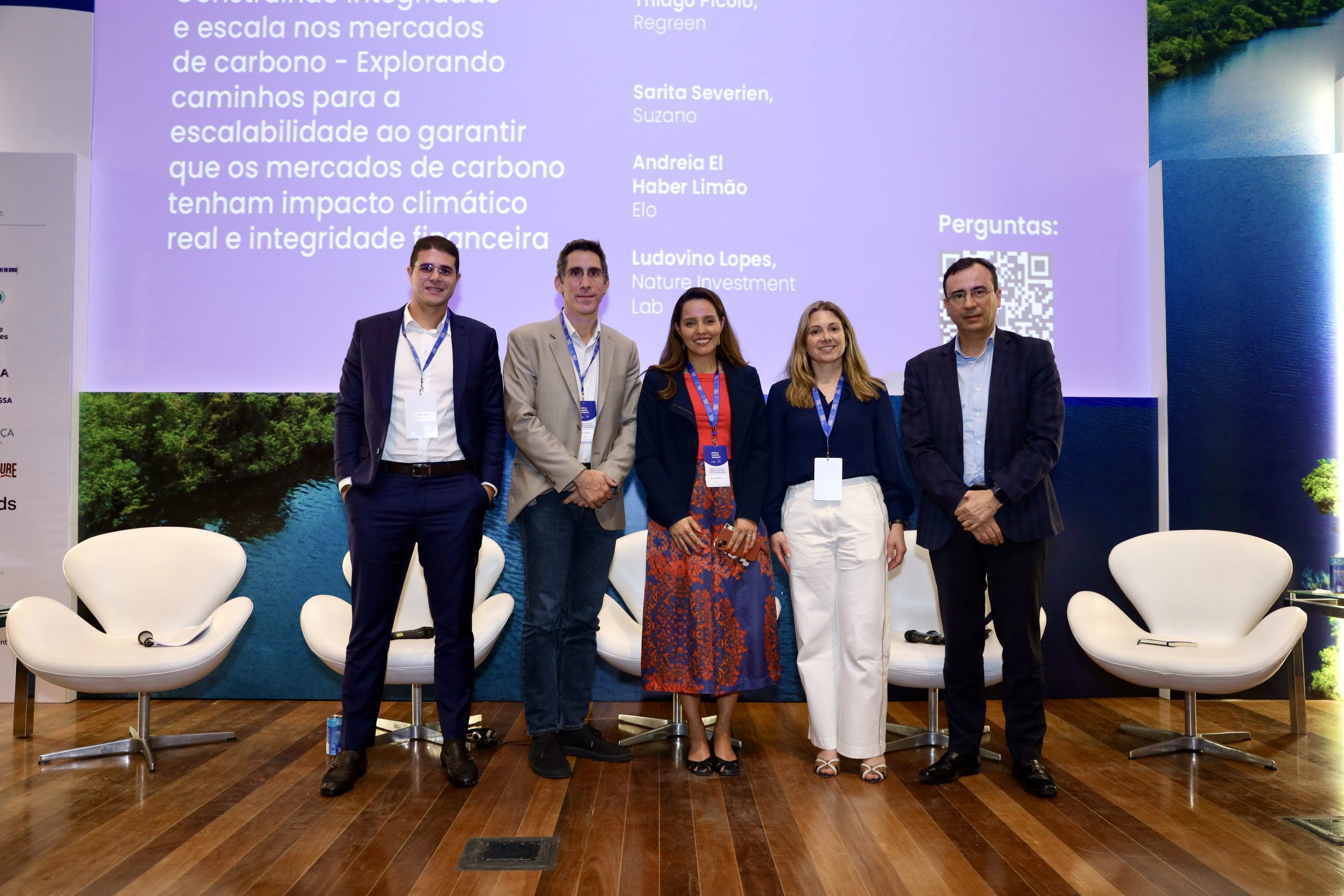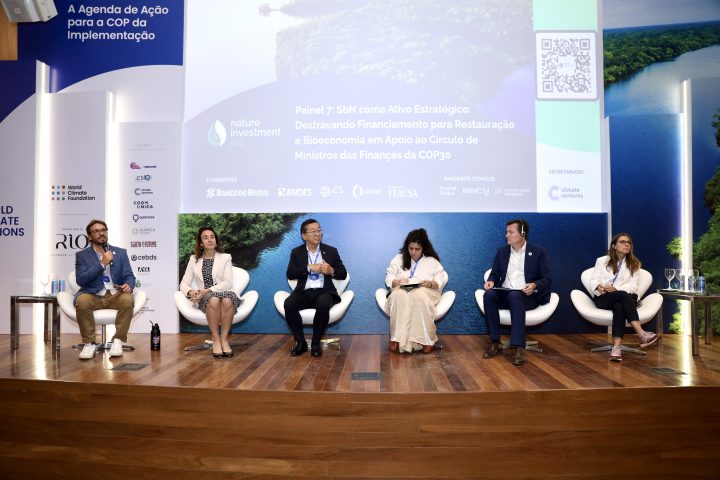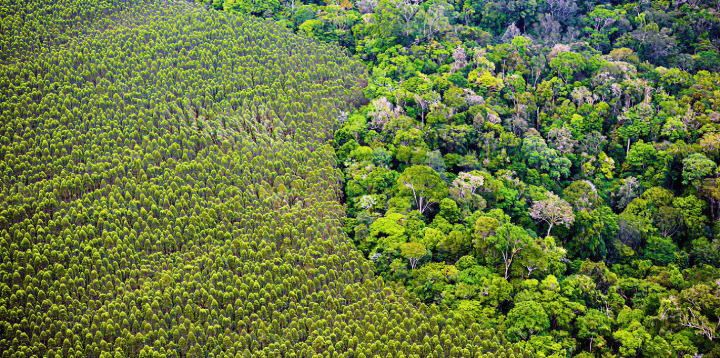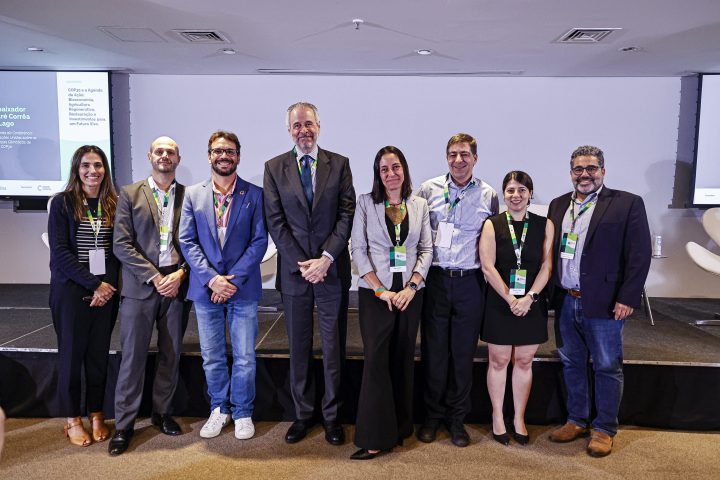“COP30 presents the moment to begin implementing the carbon market, but it requires integrity, liquidity, and scale. Brazil has the assets, but what about the integrity that builds trust, the integration that creates liquidity, and the well-structured capital that leads to the necessary scale?” This statement comes from lawyer Ludovino Lopes of the Nature Investment Lab (NIL), a panelist during a discussion on the topic at Rio Climate Action Week. The event, titled “Building Integrity and Scale in Carbon Markets,” also featured representatives from re.green, Suzano, and Elo, and was moderated by Daniel Martins of PwC / Strategy&.
Lopes recalled that it took Brazil nearly a decade to establish the sector’s rules, although the first transactions began in 2005 when the Kyoto Protocol—celebrated in 1997—came into force. According to the lawyer, the country was once the world’s third-largest trader of Clean Development Mechanism (CDM) credits, behind China and India. After 2007, the global market for credits based on the United Nations model declined, only regaining momentum after 2015 with the Paris Agreement. In December 2024, the Brazilian government joined the select group of countries with a regulated carbon market by sanctioning the law that regulates the sector and establishes rules for trading greenhouse gas emissions in the country, thereby aligning its international targets (declared in its NDC) with an essential instrument for calibrating the domestic regulated market under a “cap-and-trade” model.
“The Paris Agreement redesigned international climate governance, transforming the carbon market into a global common good. All countries now have a responsibility to contribute. This new order demands robust and globally integrated mechanisms. Brazil and other countries will even have strategic trade agreements, with carbon credits becoming part of the export agenda,” stated Lopes.
The law that regulated the sector in Brazil determines that carbon credits from the regulated market, or those to be traded on the capital markets, assume the legal nature of securities. They are therefore subject to regulation by the CVM (Securities and Exchange Commission of Brazil) and consequently have the capital markets as their “transactional locus.” For Daniel Martins of PwC, the country is well-positioned to be a major player in the sector. “By 2035, the global market could reach $7 billion, with $2 billion generated by Brazil,” he said.
However, significant challenges remain in turning this potential into reality. Thiago Piccolo, CEO of re.green—a company specializing in ecological restoration and carbon credit generation—pointed to financing as the main obstacle: “There is demand and operational capacity, but resources are lacking. Few investors are willing to finance high-risk projects with long-term returns.”
“There is also the land tenure issue. It’s difficult to find an area without environmental liabilities and with proper documentation. There are also operational problems—we’re talking about many seedlings and seeds, operating thousands of hectares in remote, non-mechanized areas. We need to evolve the market from its current, almost artisanal stage to a large-scale business,” he said. “We also need to think about science, technology, drones, and tree genetics.”
For large companies like Suzano—Brazil’s largest consumer of natural gas, with 11 factories—this operation becomes easier. The company is one of the founders of Biomas, an initiative created to restore and protect native forests. Through this, Suzano itself generates carbon credits linked to its products, from medicine boxes to carbon-neutral paper.
“We are thrilled with the regulation of the carbon market, but now it needs to be operational. I believe this will still take another four or five years. We manage eucalyptus and partner with suppliers and communities. We need everyone to be on board,” said Sarita Severien, Sustainability and Climate Change Manager at Suzano.
Andreia El Haber, Superintendent of Sustainability at Elo—a Brazilian card company—identified the lack of reliable information to monitor transactions as a major bottleneck in the market. To meet this demand, Elo recently launched Elo Eco, a carbon credit management platform that uses tokenization to provide traceability and transparency to trades.
“Today, the platform shows price ranges and parameters, and information about the carbon credit trading process is contained within a token. It’s a way to speed up commercialization and scale the business,” she says. “The more information you share, the more support you get. I invite companies to look inward, understand their skills, and support this market.”
About the Nature Investment Lab (NIL)
The Nature Investment Lab is a collaborative, private-sector-led initiative created to overcome legal and financial challenges, develop replicable business models, and create innovative financial structures for sustainable projects in Brazil. Its Strategic Committee includes institutions such as Banco do Brasil, BNDES, the Glasgow Financial Alliance for Net Zero (GFANZ), the Institute for Climate and Society (iCS), and Instituto Itaúsa. Climate Ventures serves as the secretariat, and Impacta – Sustainable Finance is the initiative’s technical partner.



